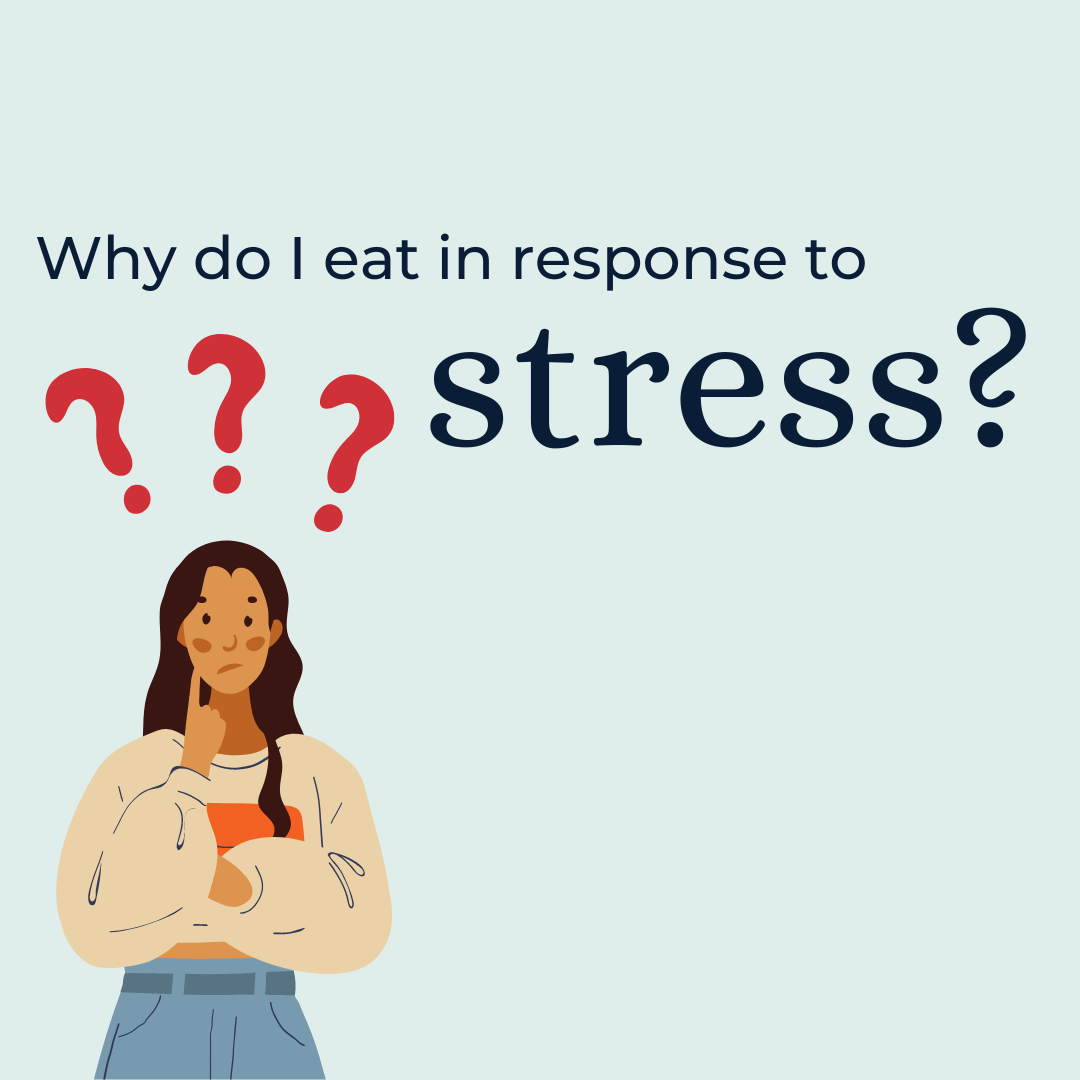Why do I eat when I am stressed?
Why do I eat when I am stressed?
This is such a common question, because it is a common experience – and that is because eating in response to psychological and physiological stress is normal! It makes sense that we need more fuel or energy available in times of stress, as not only does being stressed use energy, our bodies want to make sure we have plenty of energy available in case we have to ‘flight’ or ‘fight’.
Understanding why we eat in response to stress may allow us to hold more compassion for ourselves in times of stress eating and reduce the shame that may be associated with this. With this understanding we may actually be able to start seeing eating in response to stress as a strategy we use to take care of ourselves, especially when we are lacking other emotional management strategies. So, why do we eat when we’re stressed?
· Cortisol, aka the stress hormone, increases appetite, which often leads to what we know as 'stress eating'. Cortisol also impacts the types of foods we want to eat! We are more likely to crave foods that are high in fat, salt and sugar, often foods we label as 'bad' or 'comfort foods'. Some research (using animals) found these foods appear to have a feedback effect that dampens stress related responses and emotions.
· Ghrelin is another hormone that can be impacted by stress. Ghrelin is often referred to as the "hunger hormone" and is released in response to both acute and chronic stress. A study has shown that stress can impact ghrelin more in the evening than the daytime, which might account for stress eating occurring more often at the end of the day.
· Stress can be incredibly impactful on sleep, and we aren't sleeping well, we experience an increase in ghrelin (hunger hormone) levels and lowers leptin (satiety hormone) levels. This disturbance hindering feelings of fullness and increases cravings higher energy foods in an effort to provide the energy we are missing.
· Sometimes stress eating is more linked to emotions than hormone and appetite dysregulation. Stress eating may also be linked more to emotions than to appetite, because food/eating is a very effective emotional management strategy and way to meet our needs - this is only an issue if it is our only emotional management strategy.
It makes sense that we can find ourselves eating in response to stress, and it is okay to do so. If you’re feeling it is getting out of hand, or want to better understand your triggers for stress eating click here to book in with a Wholebeing CO dietitian today!

